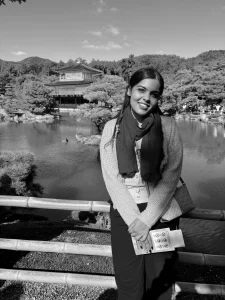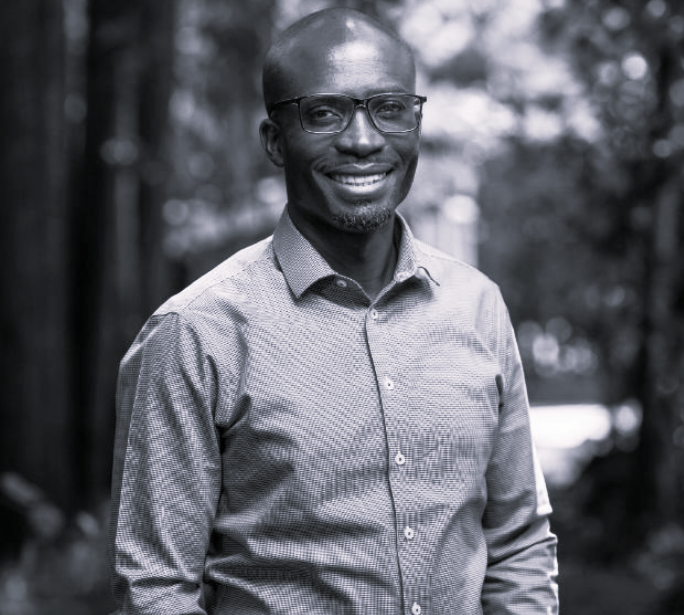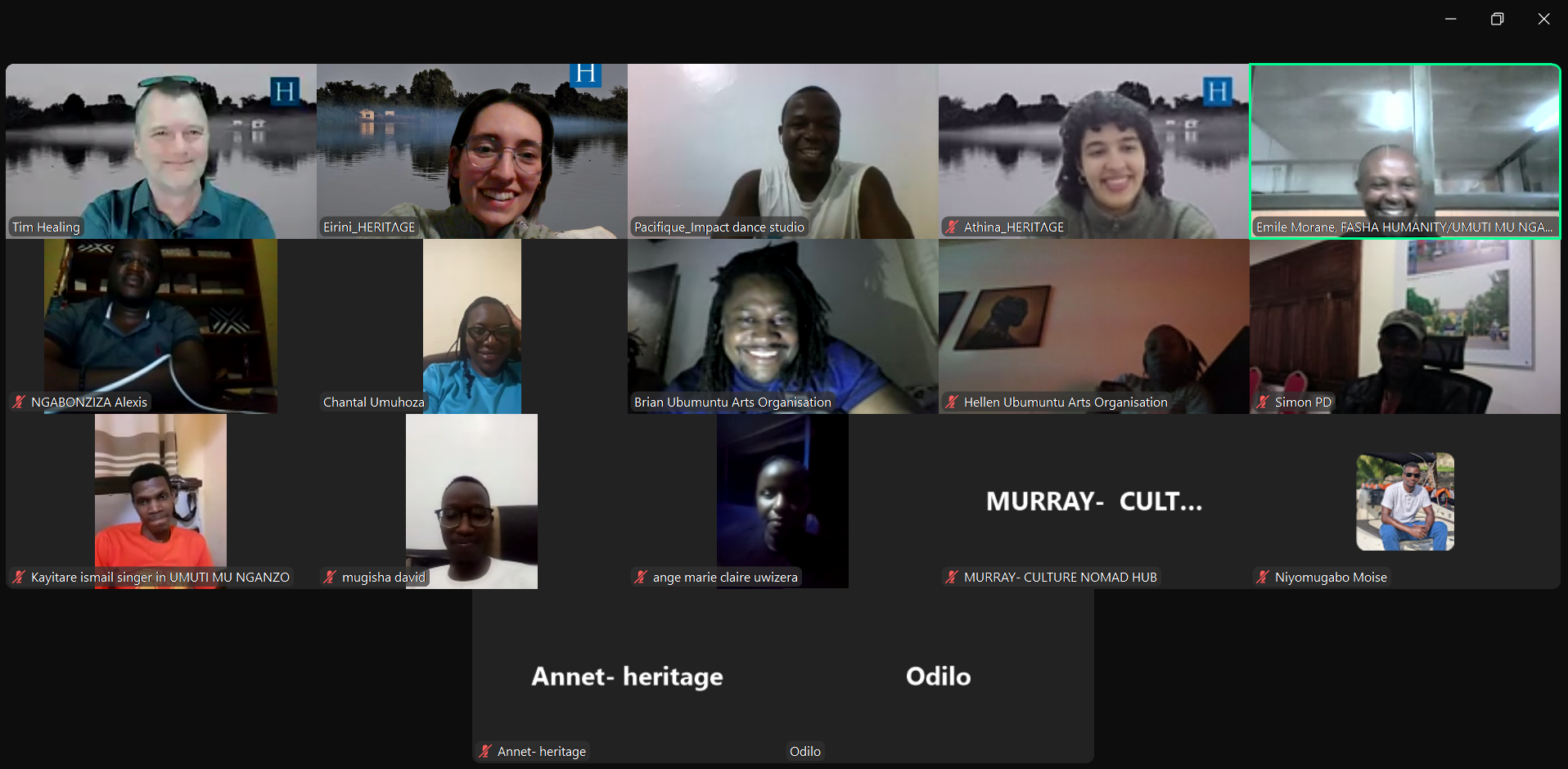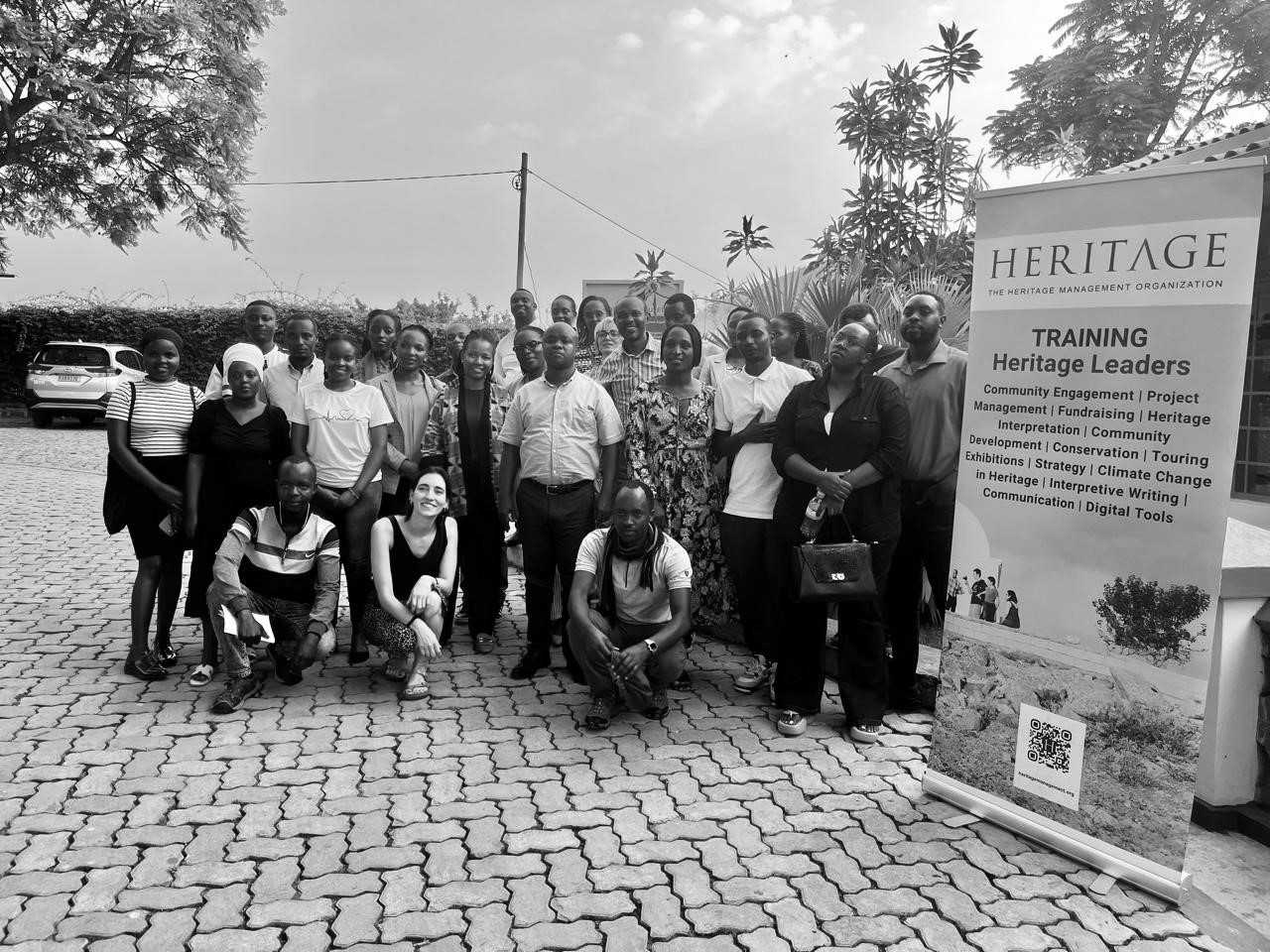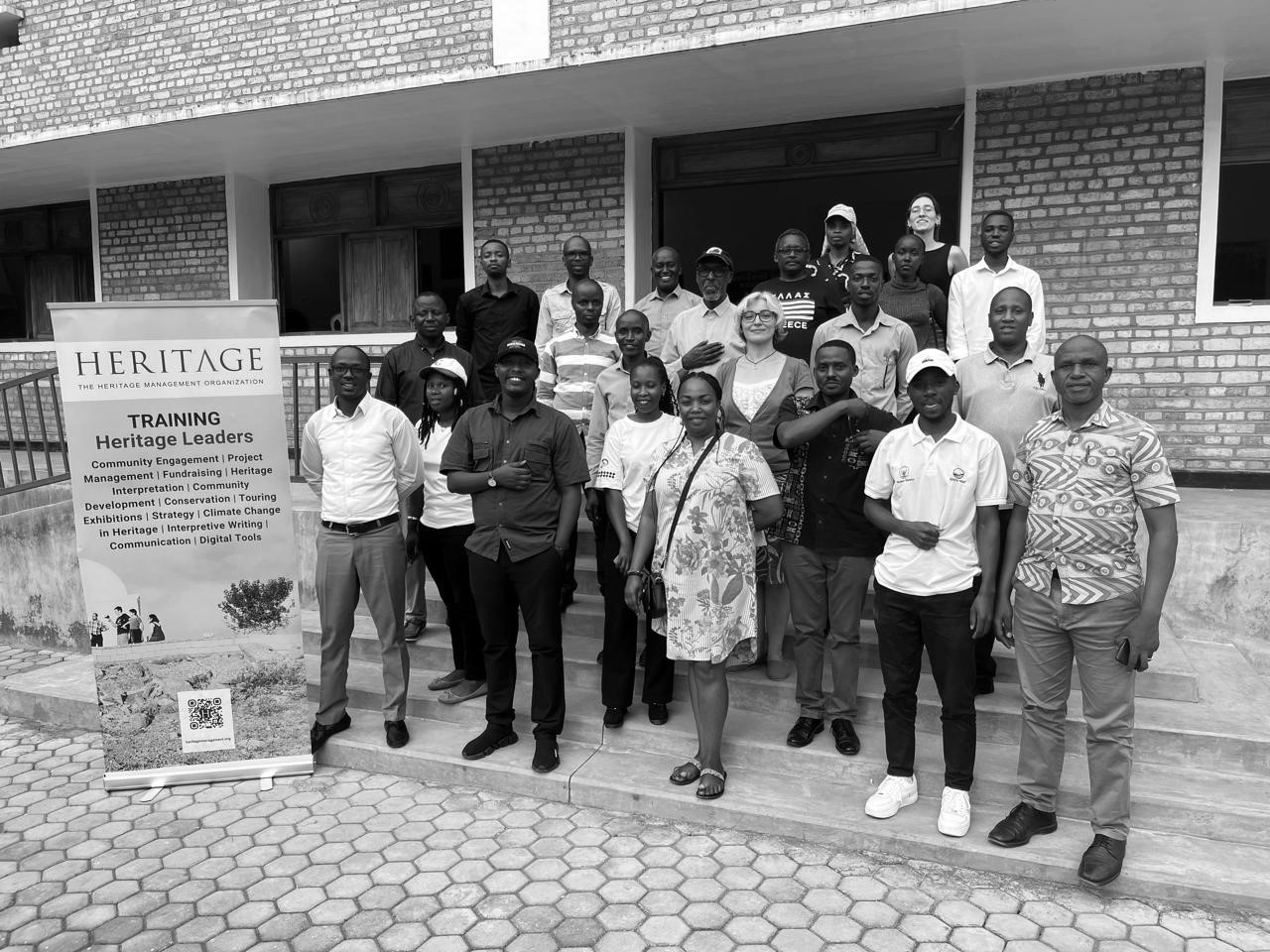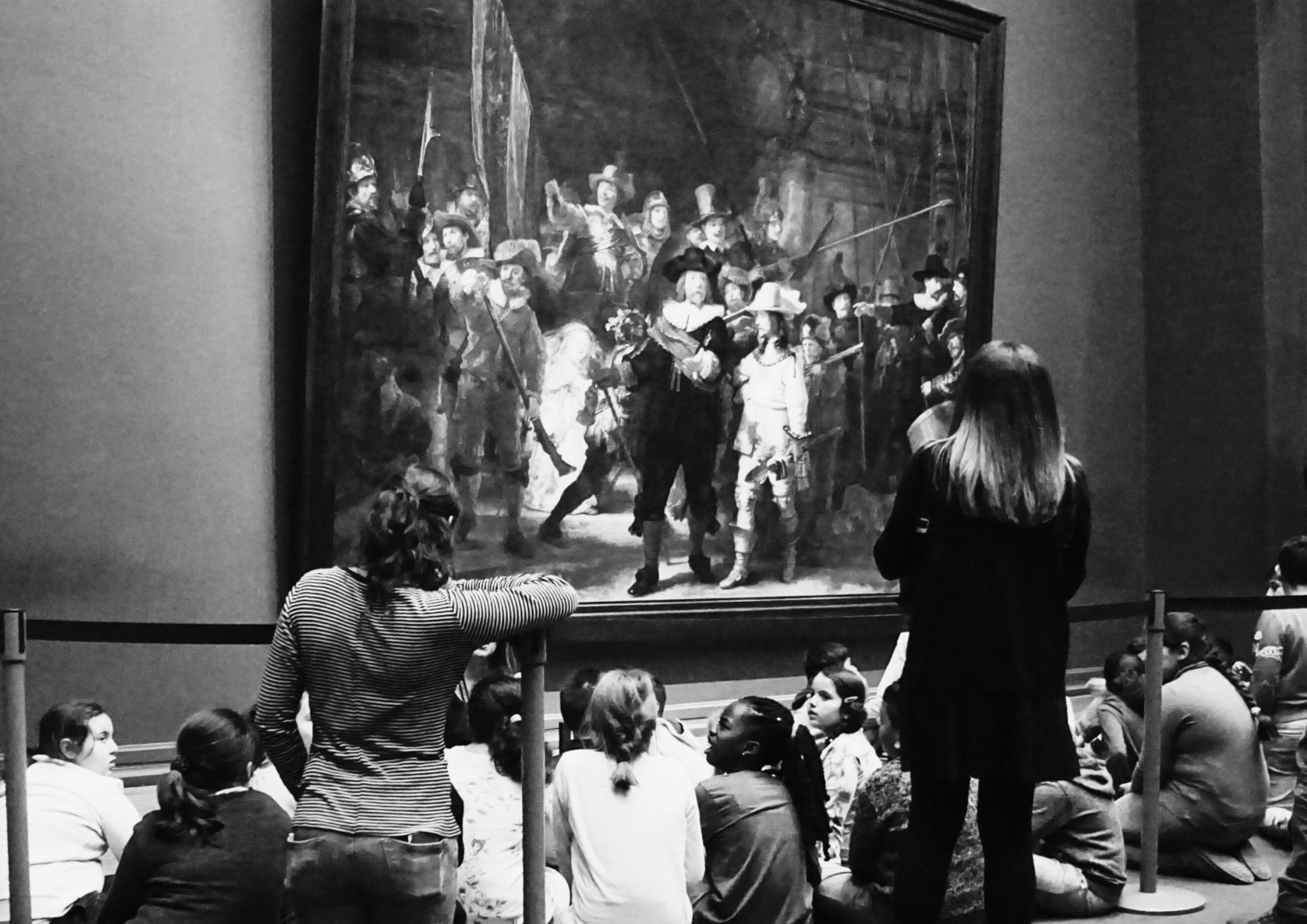: HMO Workshops
Legacy Builders: Srishti Jauhri
Srishti Jauhri | Heritage Expert, Development and Research Organisation for Nature, Arts and Heritage (DRONAH), India
Which workshop(s) did you attend?
I attended the Interpretive Writing for Natural and Cultural Heritage online workshop in November 2024. Over the course of the workshop, we explored the foundations of interpretive writing and practiced crafting compelling narratives that can help visitors connect more deeply with heritage.
Was the training an opportunity to enhance your connection with your peers?
Absolutely. The workshop fostered a highly interactive environment through breakout discussions and collaborative exercises. I had the opportunity to work and exchange ideas with peers from across the world – including heritage practitioners from Africa, Europe, and Asia.
This was especially enriching because it highlighted how people interpret heritage differently based on their backgrounds. Understanding these varied perspectives helped me deepen my own interpretive approach and build a small but meaningful global network of colleagues.
Has the training contributed towards the improvement of your career?
Yes, very much so. Interpretation is central to my work and this training significantly strengthened my expertise in this domain. It boosted my confidence in writing for diverse audiences and helped me refine a skill set that is now directly supporting projects related to heritage interpretation and audio-visual storytelling.
The experience also added credibility to my professional profile, as interpretive writing is a critical yet specialized role in the heritage sector.
Do you feel that your ability to perform relevant tasks has improved?
Yes — in several practical ways. The training helped me:
• Learn how to develop clear interpretive themes
• Transform plain descriptive information into engaging narratives
• Structure text differently depending on the medium (panels, scripts, audio guides, etc.)
• Create catchy titles and key messages that hold attention
• Critically assess readability and engagement in interpretive writing
This shift in mindset — from “informing audiences” to “connecting with audiences” — has now become core to my interpretive writing approach.
Following the completion of the training, has your project benefited? How? (please briefly explain what your project/ organization is about and how it benefited from your training.
Yes — I applied my learnings directly to our project on the development of an interpretation centre for a monument of national importance in the south of India – the Kailasanathar Temple in Kanchipuram. After completing the workshop, I applied the methods learnt to draft audio guide scripts, write narrative content for the website, design the structure for an audiovisual presentation in the centre, and begin shaping the text and key messaging for physical interpretive panels. The training helped me establish strong interpretive themes and translate complex architectural and religious concepts into accessible, engaging storytelling that invites curiosity and emotional connection. These skills have strengthened the foundation for creating a visitor experience that is both informative and meaningfully immersive. The centre is still under development, and I am excited to see how our interpretive content shapes visitor experiences on the site!
Would you recommend this training to others?
Absolutely. I would highly recommend this workshop to heritage interpreters, museum professionals, and anyone engaged in public-facing heritage communication. It offers practical tools and thoughtful guidance that greatly enhance one’s ability to communicate heritage values in compelling, visitor-focused ways!
Legacy Builders: Vitalice Ochieng
Vitalice Ochieng | Senior Programme Manager -TICAH (Trust for Indigenous Culture and Health), Kenya
Which workshop did you attend?
I have attended the following courses:
1. Successful Fundraising for Heritage Managers: Strategies and Best Practices
2. Communication Strategy and Strategic Marketing for Cultural Organizations
3. Interpretive Writing for Natural and Cultural Heritage
4. Project Management for Heritage Managers
5. Engaging Communities in Cultural Heritage
6. Community and Economic Development
7. Impact Assessment
Was the training an opportunity to enhance your connection with your peers?
Yes, the courses have been a wonderful opportunity to meet peers and make friends across borders. I have many friends from other countries with whom I can discuss my projects and even personal issues. Every course connected me with at least one new friend.
Has the training contributed towards the improvement of your career?
A lot. Even though I am still at TICAH, it has reinforced my leadership and the standing of my programme. The training has also enabled me to learn from other projects in different contexts, giving me valuable insights and different strategies for approaching my own projects. The opportunity to share my projects with peers during the training has also strengthened my belief in my own strategies and initiatives. Receiving feedback and appreciation when I share makes me more confident in my approaches.
Do you feel that your ability to perform relevant tasks has improved?
Yes. My understanding of community engagement, fundraising for heritage, communication, and heritage management has grown significantly.
Following the completion of the training, has your project benefited?
Yes. One of my projects, which entails the promotion of the cultural heritage of the Mijikenda community in Kenya, has benefited greatly from this training. For instance, the idea to support the community in strengthening their cultural tourism was shaped by the training on Economic Development. We were able to support the community in producing cultural dresses and costumes to celebrate the Rabai Cultural Festival in 2024.
Would you recommend this training to others?
Yes, most definitely. There are not many opportunities available for people to learn heritage management. Apart from people like me with a background in Anthropology or Cultural Studies, there are also other professionals such as managers, architects, and scientists who are in charge of heritage but may not have a cultural understanding of its management. Likewise, there are people with a background in cultural studies who may lack skills such as fundraising, communication, or project management. This training is very important for anyone working in a field where heritage, both natural and cultural, is involved.
Project Development and Grant Writing Workshop
From 17th to 21st March, HERITΛGE welcomed 25 participants from across Rwanda to our online Project Development and Grant Writing Workshop.The workshop aimed to help participants gain a greater understanding of the development process whilst building specialised skills along the way.
“The workshop enhanced our project planning, improved our funding opportunities through grant writing, strengthened communication, ensured sustainability, and expanded our networking for future collaborations.”
Brian Hativatye Geza, Creative Director, Ubumuntu Arts Organisation
HERITΛGE’s Tim Healing introduced the workshop by focusing on project development and project management strategies including discussing the Project Cycle Method. Participants then concentrated on the process of writing grant applications, focusing on the key elements needed to make a persuasive case. This was accompanied by case study analysis and group exercises where participants could demonstrate the knowledge they had already developed over the last couple of days. It was gratifying to see how well everyone collaborated in their teams and enthusiastically engaged with the material, asking constructive questions throughout.
“The training was well prepared, with timely and clear communication. The content and instructions were concise and easy to understand. The heritage team actively supported us during plenary and group work, creating an engaging and collaborative environment. The team rotations allowed us to connect with one another, and the overall atmosphere encouraged full participation. Great job done!
Emile Morane, FASHA HUMANITY / UMUTI MU NGANZO, CEO- President Founder Owner
The workshop was held as part of the Rwanda Programme, HerMaP Africa, which is supported by the Mellon Foundation.
Participants came from organisations including Gatore Arts, NZIZA ORGANIZATION, INGANZO Y’URURIMI N’UMUCO, Nomad culture hub, RCHA, Alexis Badege Mining Ltd, Rwanda culture conservation clubs and enterprise, Bwishyura Kivu Boat Co-operative (BKBC), Come&Dance, FASHA HUMANITY,UMUTI MU NGANZO, Dufatanye Organization, TOGETHER IS THE BEST, Educate!, Ubumuntu Arts Organisation, University of Rwanda, Akagera traditional cultural village, and Millennium Community Development Organization (MCDO).
To read more about our upcoming workshops, click here.
Heritage Interpretation In Rwanda
49 heritage professionals from Rwanda took part in two recent Introduction to Heritage Interpretation Workshops, led by HERITΛGE’s Valia Stergioti. The participants included officials from educational institutions, heritage sites, tourist businesses, local communities and NGOs.
During the workshop, which was led in person by HERITΛGE’s Valya Stergioti, they were introduced to the skills that allow heritage managers to transform mere phenomena into captivating experiences. They learned how to evoke a deep resonance within visitors at heritage sites of natural and/or cultural significance, guiding them towards profound insights and nurturing an appreciation for all aspects of heritage. Additionally, participants developed the ability to provide and receive constructive feedback to and from their peers.
The first of the two workshops was delivered in cooperation with the Rwanda Cultural Heritage Academy to 26 heritage and tourism professionals and took place on 24-26 July at the Rwanda Heritage Hub and the Kandt House Museum in Kigali.
“I learned to connect our participants to the site, which will help to increase our visitors satisfaction” said Esther Kakuze, Managing Director of ImuHira Ecotourism Rwanda who took part in the workshops.
“My project and institution will benefit through my professional practice,paying attention to all details related to heritage Management and community engagement,” said Wilhelm Mugiramahoro, Operations Officer for the Rwanda Cultural Heritage Academy.
The second workshop was delivered in cooperation with Nyanza District to 23 heritage and tourism professionals in the Nyanza District’s Visitor Centre.
“I have gained new skills as the heritage interpretation workshop was a new subject to me. I will use them so my visitors can enjoy our site and be our ambassadors, ” siad Sandrine Uwambayinkindi from the Girampuhwe Visitor Centre.
Both workshops are part of our HerMaP Africa program which is realised with the generous support of the Mellon Foundation’s Humanities in Place program.
Empowering heritage leaders with fundraising strategies and best practices
Twenty one Heritage Managers from Africa (Cameroon, Egypt, Ghana, Kenya, Malawi, Nigeria, South Africa, Swaziland, Zimbabwe), Asia (Afghanistan, Iraq), and Europe (Greece, Ukraine, United Kingdom) took part in HERITΛGE’s 3-day online workshop on “Successful Fundraising for Heritage Managers: Strategies and Best Practices” from 22 to 24 March 2024. During the workshop, participants acquired a strong understanding of how to develop and execute effective fundraising strategies, with the aim of increasing their organizations contributed revenues and its global impact.
Workshops participants successfully developed and implemented strategies in the core principles of fundraising, as well as effective approaches to resolving ethical dilemmas. They also honed their collaboration skills and techniques in relation to executive and voluntary leadership and were trained in crafting and presenting a persuasive case for support through prospect research.
Additionally, the workshop instructors, Linda C. Hartley and Jennier E. Herring, skillfully guided attendees in the art of cultivating and approaching potential donors, mastering the art of making personal donation requests, and successfully obtaining grants from foundations and corporations.
Empowering Heritage Managers: Mastering Temporary and Touring Exhibition Strategies
This academic year’s 3-day workshop on Organizing Temporary Exhibitions from your Collection and Touring Strategies took place online from 2 to 4 February 2024. It was attended by16 heritage managers from Africa (Botswana, Egypt, Ethiopia, Kenya, Malawi, Namibia, Rwanda, South Africa, Tanzania, and The Gambia) and Europe (Hungary) who acquired with the necessary knowledge and skills to enhance and promote their institution’s mission through temporary, touring, and partnership exhibitions.
The workshop was led by Dana Andrew, an independent museum consultant and trainer specializing in touring exhibitions and international projects. Dana is also a part-time Executive Director of the International Council of Museums UK (ICOM UK) and a committee member and trainer for the Touring Exhibitions Group (TEG).
The participants were also treated to the contributions of two distinguished keynote speakers that added immense value to the lectures. Nelly Ekstrom, with her vast experience at the Wellcome Gallery in London, shared valuable insights on how to enhance accessibility in Exhibitions while Navjot Mangat shed light on community engagement practices at the Horniman Museum, using Tea as a case study.
Throughout the workshop, the participants delved into the intricacies of planning and organizing temporary exhibitions both within their institutions and on tour. This involved identifying exhibition objectives, crafting a captivating narrative, and curating engaging content to provide visitors with a memorable experience. The workshop also explored strategies for touring exhibitions on a national and international scale, as well as methods to ensure sustainability and accessibility in exhibition design.
Through lively and thought-provoking discussions, participants not only gained valuable insights but also developed a deep understanding of how to create exhibitions that align with their organization’s mission while catering to the needs and interests of their target audience. They also learned about the importance of partnerships, production, and economic models in the exhibition industry, enabling them to select the most suitable models for their institution.

